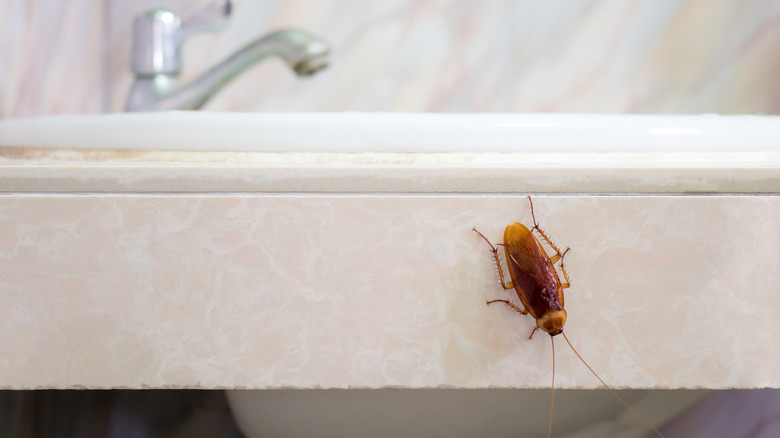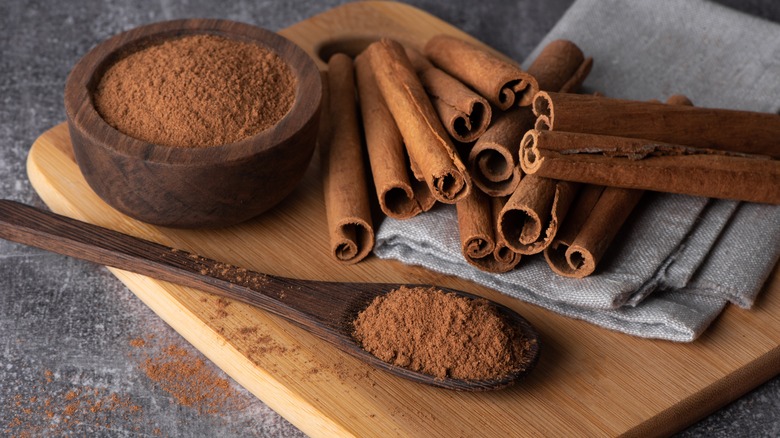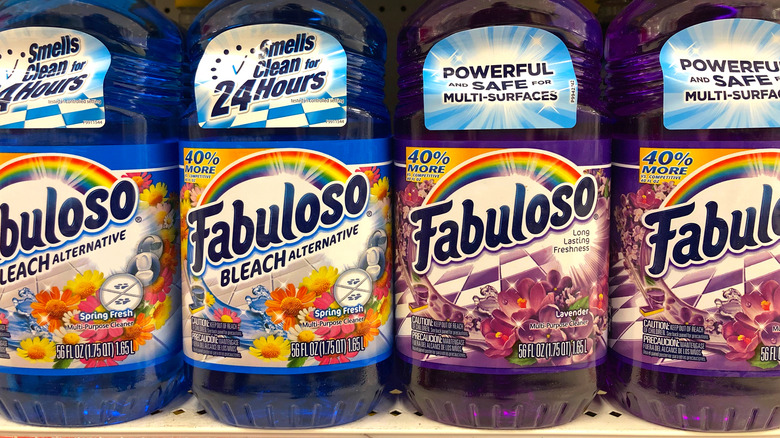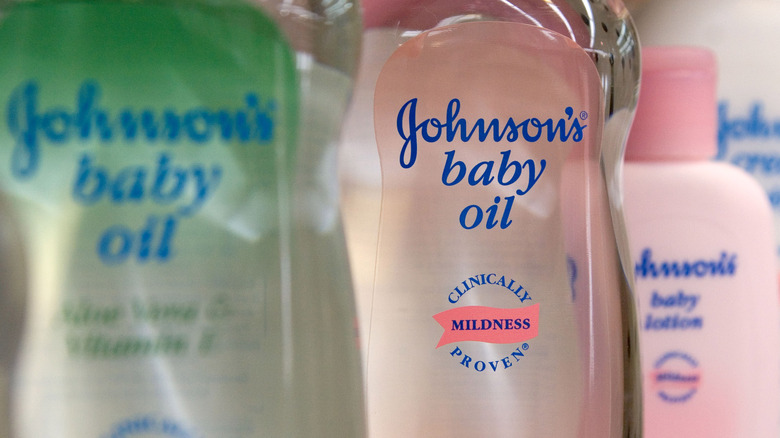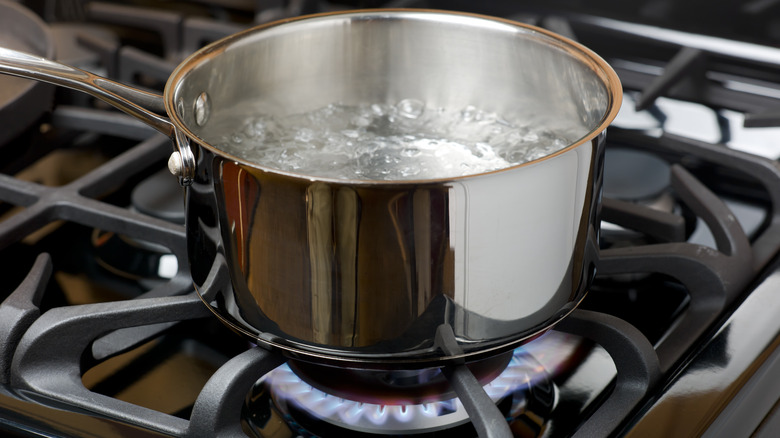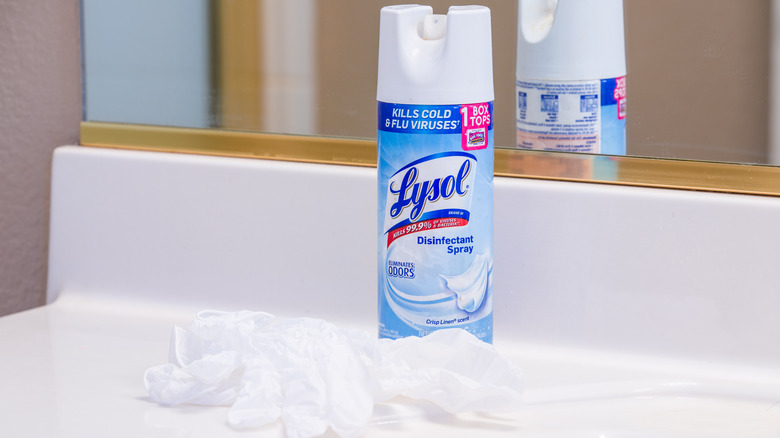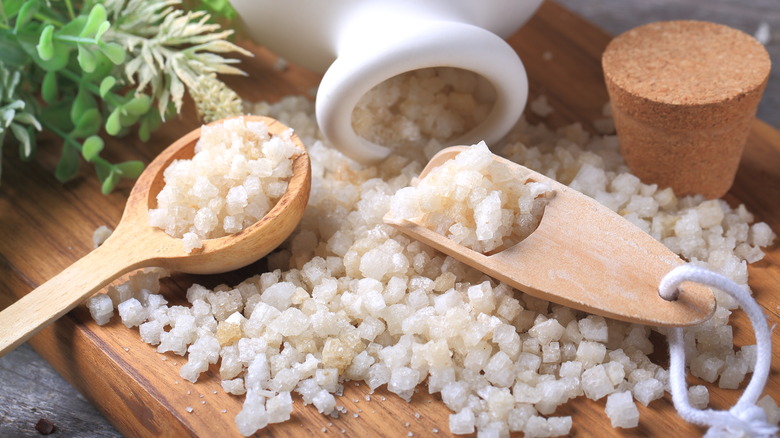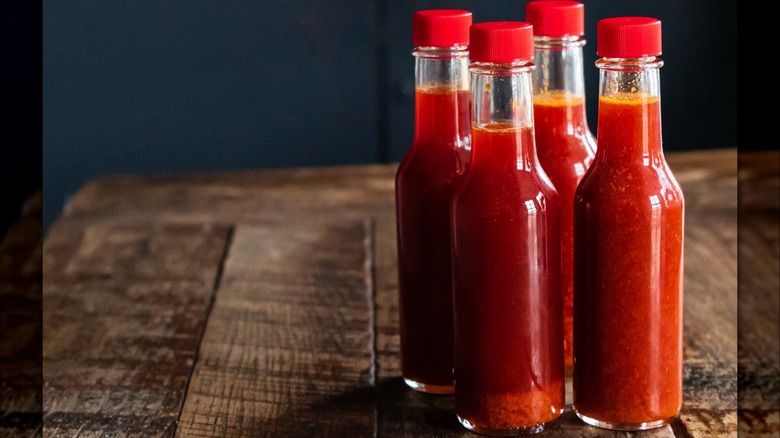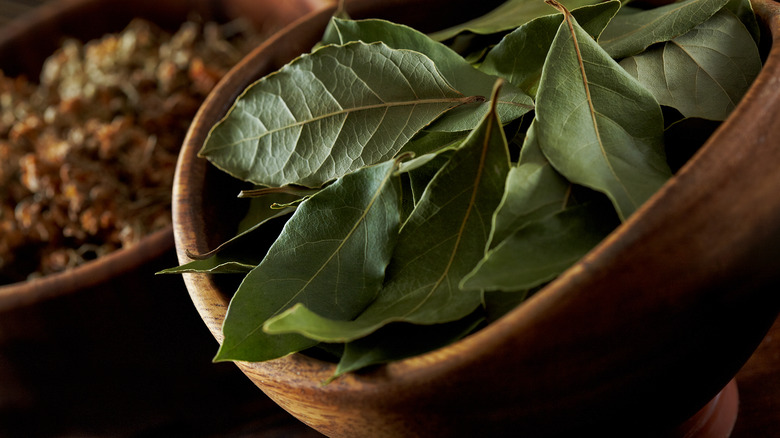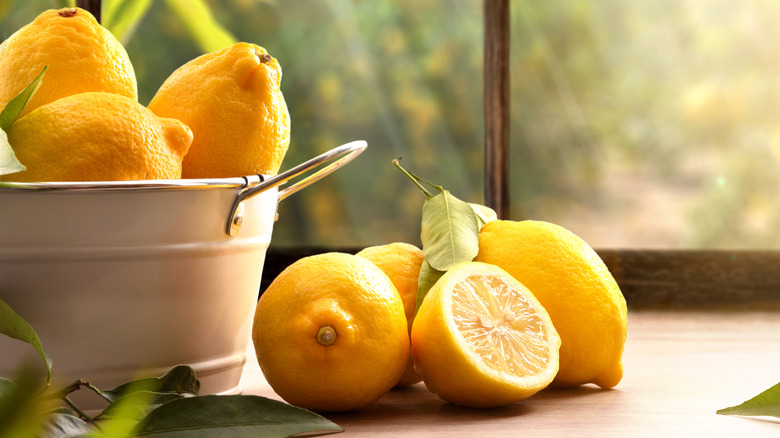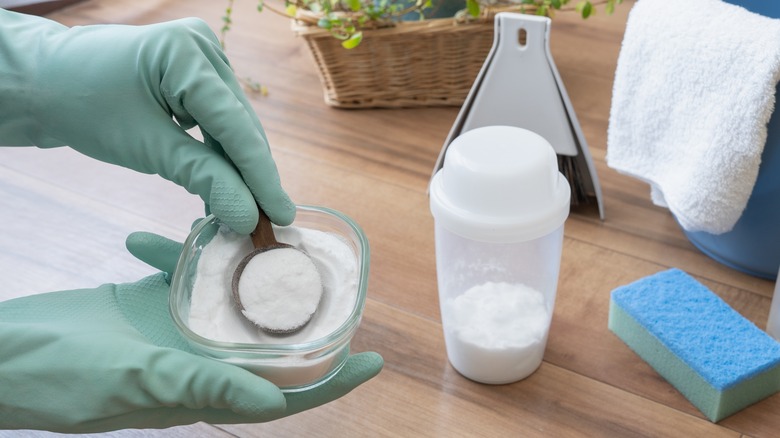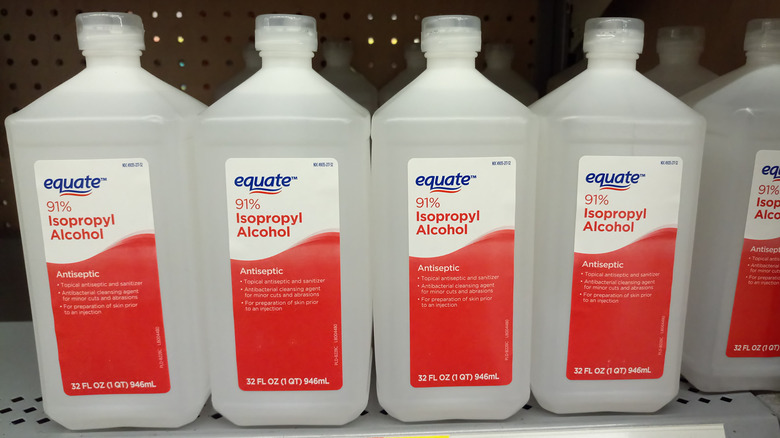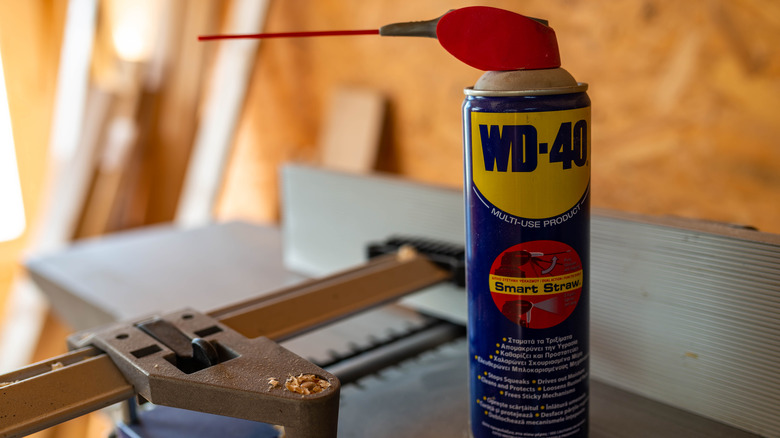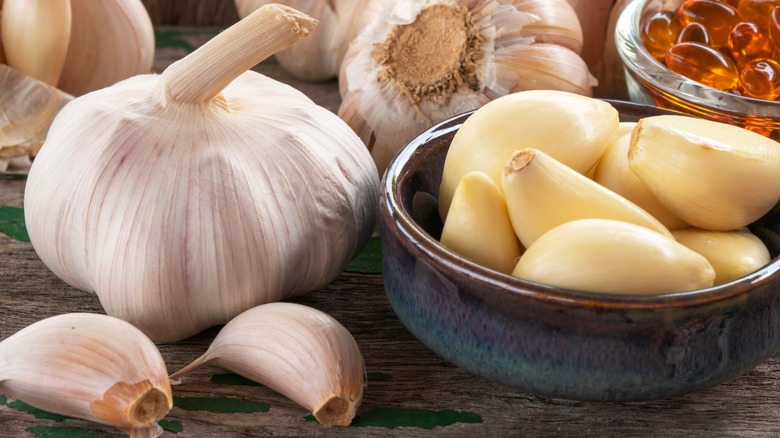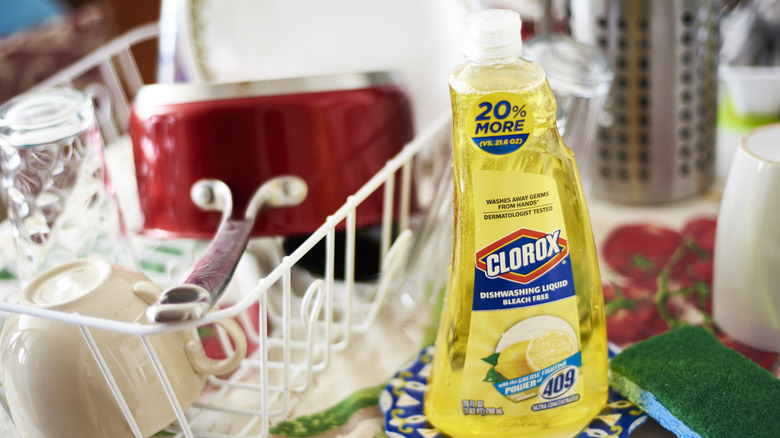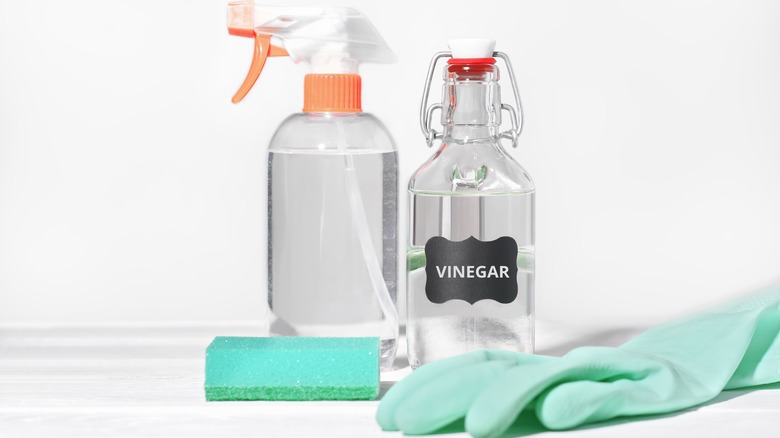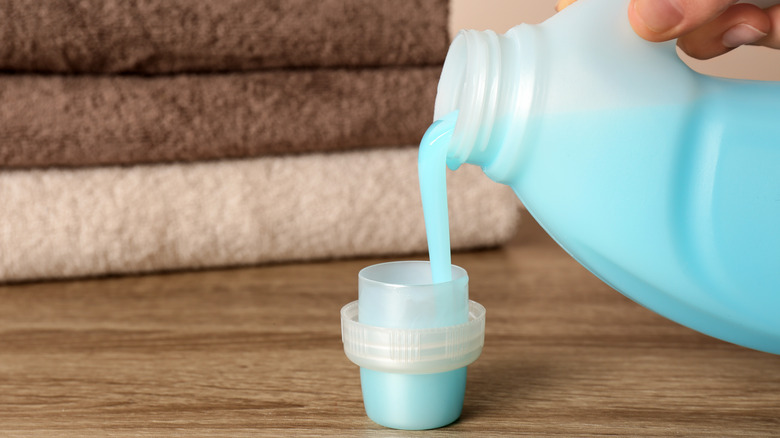16 Everyday Household Products That Can Help Drive Pesky Roaches Away
Roaches love dark and damp places. The grimy areas around plumping pipes and between walls are a dream for these nocturnal insects. Apart from giving us the creeps, cockroaches carry bacteria and disease, putting them on the no-entry list for our homes. But getting rid of them is easier said than done. Roaches are adaptable and move fast. Preventing these bugs from coming in by sealing cracks, clearing out garbage, or planting greenery that roaches hate is the first barrier of protection.
If they have already crossed the threshold, there are some household products you probably have on hand that can mitigate the issue. Certain spices, cleaners, and soaps can deter and kill roaches. So you don't have to worry about buying those chemical aerosols or gels. However, these DIY insecticides and repellents are best for eliminating a handful of critters and won't do much good against a full-scale invasion — although they could stop an infestation from happening in the first place.
1. Cinnamon's scent masks food smells
Cinnamon and cinnamon oil are listed as cockroach repellents in the New York State Integrated Pest Management database. It is believed that cinnamon's strong scent masks the food odors luring roaches in, sending the critters elsewhere to find food. Sprinkle the powder or dilute cinnamon oil with water and spray cracks where the insects enter or hide. The NYS Integrated Pest Management also registers cinnamon and its oil as a cat and dog repellent, so it is not ideal if you have pets.
2. Fabuloso does more than clean floors
Fabuloso is great for mopping floors, cleaning showers, and eliminating cockroaches. Its active ingredients — like sodium chloride, lactic acid, and citric acid — coupled with its strong scent repel and kill roaches. Plus, you can use the disinfectant to remove food crumbs or odors attracting the critters. However, Fabuloso's pest control power wears off quickly. It is best sprayed directly onto the roaches. If used as a deterrent, reapply often.
3. Baby oil can act as a trap
Baby oil is handy for creating a roach trap if the pests come from your sink or tub. Oiling the basin will make the surface too slippery for the critters to escape. While the oil keeps them in, you'll want to leave a poisoned bait near the drain to finish them off. It's best to apply the oil before nightfall, as roaches are nocturnal.
4. Boiling water clears pipes
Clearing pipes with boiling water is another way to keep the creepy crawlers from entering through the drain. The steaming liquid will wash away enticing food bits, roach eggs, and any insects surfing your water lines. This method offers short-term relief, but it is a great way to use excess cooking water and deter roaches at the same time.
5. Lysol acts to suffocate roaches
Lysol is a household cleaner that is deadly to these pests. When you spray Lysol directly onto the roaches, it seeps into the insect's spiracle — the part of the cockroach's back where they breathe from. Essentially, the disinfectant suffocates the bugs. Ethanol is also an active ingredient in the cleaning spray, which is effective in killing roaches and their eggs. You'll need to spritz the insects directly with Lysol to kill them.
6. Epsom salt acts as a dehydrator
The hard crystals in Epsom salt puncture the cockroach's body and seep in ammonium nitrate and ammonium chloride chemicals that dehydrate the insects. Epsom salt is most lethal against soft-body roaches like brown or baby cockroaches. To create the pesticide spray, thoroughly mix one part Epsom salt and four parts hot water. Target the bugs directly with the stream setting of the bottle and let it rain.
7. Hot sauce may be an effective repellent
After you've dabbed a few drops of hot sauce on your dinner plate, save a packet for the roaches. Using hot sauce near hotspot crevices may deter the critters, given the sauce contains capsaicin. This spicy element is a naturally occurring chemical in chili peppers that gives the sauce its signature heat. The U.S. Environmental Protection Agency acknowledges capsaicin as a repellent for animals and insects. Although there is no specific evidence it works against cockroaches, it might be worth a try. Add 2 tablespoons of hot sauce to 1 quart of water and spray the high-crime areas.
8. Bay leaves are another natural option
Bay leaves are another cooking ingredient that deters cockroaches instead of attracting them. A 2014 study from the Journal of Applied Chemistry found the cineole, geraniol, and piperidine in bay leaves made them repellent against roaches. It is better to use fresh leaves instead of dry ones, as they are the most potent. Just place 7 to 10 bay leaves near the cracks where roaches linger, and they'll keep working for up to two weeks.
9. Lemons have multiple uses, including roach repellent
There are several household uses for lemons, and repelling roaches is one of them. The power lies within the juice and peel. Research from the Journal of Pesticide Science in 2009 concluded limonene was a repellent against roaches, and that component is in lemon juice and the rind. However, limonene evaporates quickly, so it may only be effective enough to keep the cockroaches away in the short term.
10. Baking soda should be mixed with sugar
Roaches cannot digest baking soda. Instead, it will build up gasses in the insect that eventually lead to its death. However, roaches won't consume plain baking soda. To set a trap, mix equal parts baking soda and sugar. Then, leave the powder where the pests linger. You can also spread the baking soda/sugar mix on other enticing treats like greasy foods or cardboard.
11. Rubbing alcohol can be sprayed on the pests
Cockroaches and alcohol don't mix. The chemical can disrupt their mating and fertility cycle. Simply spray rubbing alcohol directly onto the critters. If you douse them with enough, it will dehydrate the roach's exoskeleton and inhibit their breathing. However, you'll need to spritz the critters well — and they are fast. A word of caution: Rubbing alcohol is flammable, and inhaling too much of its fumes can lead to dizziness.
12. WD-40 kills roaches quickly
WD-40 is handy for many things, including eliminating roaches. The oil kills cockroaches almost instantly. Just target the intruder and spray. You can also coat underneath doors or around windows with WD-40 to deter the creatures from coming in. However, be mindful of breathing in this lubricant's fumes. It is best to wear a mask when spraying the roaches.
13. Garlic and garlic powder work well
The smell of garlic sends roaches scurrying elsewhere. The vegetable, along with its oil, is used in various commercial pesticides. To stop the insects from invading, sprinkle garlic powder where the roaches dwell the most. You can leave the seasoning for up to a month, but it starts to lose potency by week three. Strategically placed crushed garlic cloves may also work to deter roaches.
14. Dish soap and water is a lethal combination
A 2002 study published in the Journal of Economic Entomology found dish soap diluted with tap water was lethal against cockroaches. The deaths occurred within 72 hours after spraying the critters, but they were unresponsive after three minutes. The dish detergent method is effective possibly because it dehydrates the roaches or stops them from breathing. Just add the mixture to a spray bottle and aim.
15. Vinegar works on roaches in various ways
Vinegar is another food-grade ingredient that repels roaches. The acid's strong smells interrupt the insects' pheromone trails, which impedes their communication and travel. Distilled white vinegar is the choice variety for roach repelling. Spray it in areas the cockroaches like to hang out to end their party. You can also add baking soda or dish soap to the vinegar to increase its potency. The baking soda messes with the critter's digestion, while the soap can limit their breathing.
16. Fabric softener can be used as a spray
Fabric softener works similarly to dish soap, as you have to target the roaches directly to eliminate them. The laundry essential coats the insects' body and blocks their airways, eventually killing them. Mix three parts fabric softener and two parts water to create the concoction, then spray away. Remember, it might be time to call in professionals if you need to use these DIY methods often.
